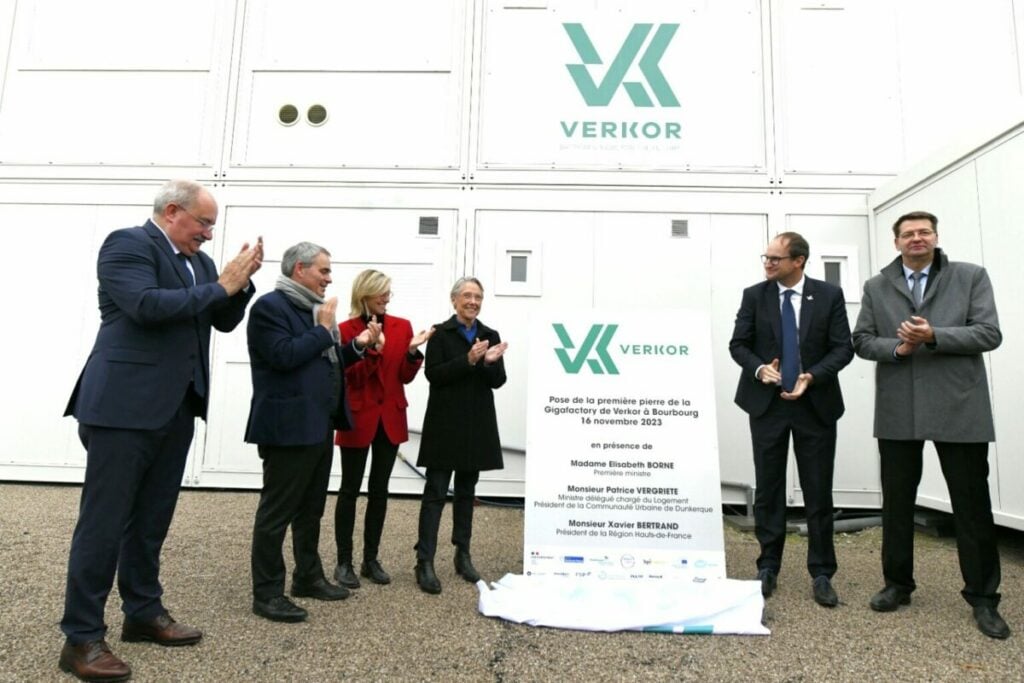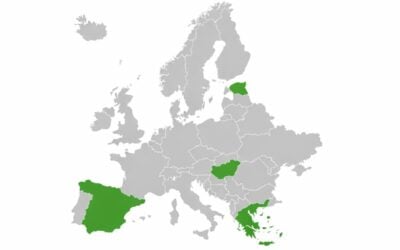
The forthcoming introduction of the European Union (EU) Battery Passport could result in a 2-10% reduction in procurement costs, according to the consortium tasked with its implementation.
The so-called passport will provide an electronic record of all battery devices, components, and even materials in the EU market. It is a pillar of the EU’s new Batteries Regulation, which replaces previous directives in place since 2006, and therefore, compliance will be mandatory.
The regulation takes a phased approach to introducing requirements for anyone placing a battery in the EU market to be accountable for and manage everything from carbon footprint and recycled content to safety and performance.
The digital ‘passport’ is the critical technology to enable tracking and transparency around those metrics, putting QR codes into batteries that give access to several levels of data.
Try Premium for just $1
- Full premium access for the first month at only $1
- Converts to an annual rate after 30 days unless cancelled
- Cancel anytime during the trial period
Premium Benefits
- Expert industry analysis and interviews
- Digital access to PV Tech Power journal
- Exclusive event discounts
Or get the full Premium subscription right away
Or continue reading this article for free
It will also be the EU’s first ‘digital product passport’, which means that what happens with batteries could be adapted or replicated for many other industries.
The Battery Passport Consortium, the team behind the rollout, published its first technical guidance on the scheme around a year ago. It highlighted which data metrics will need to be included and to what level of detail.
This week, the consortium published the first-ever study into the value of the Battery Passport. It claimed the study comprehensively analyses the passport’s benefits. It also examined potential challenges its implementation or interpretation may pose for stakeholders, from consumers to policymakers and industry.
Supported by funding from Germany’s Ministry of Economic Affairs and Climate Action (BMWK), the value assessment’s presentation of 12 use cases for the Battery Passport along the value chain is supplemented by an in-depth analysis of three among them.
Of the dozen identified use cases, seven could be enabled by the currently mandated data collection and display requirements, while the remaining five would likely need further regulatory changes or support to enable them.
Use cases that could immediately be enabled include reliable communication of ESG data, better-informed purchase decisions, and more precise risk assessment for transporting used batteries.
Meanwhile, use cases that go beyond current regulatory requirements and could be unlocked by the passport include increased end-of-life battery collection, better industry benchmarking, and informed policy design.
Passport will impact how BESS industry thinks about procurement, performance and end-of-life
As mentioned above, battery performance will also be among the metrics displayed on each device’s QR code.
This will enable better residual value determination, and it means that procurement costs for ‘independent operators’ could be reduced by 2-10%, including technical testing costs.
Information being made available on individual battery composition and dismantling could lead to a reduction of pre-processing and treatment costs ahead of recycling by 10-20%, the study found.
Richard Wagstaff, head of procurement at energy storage investor-developer Gore Street Energy Storage Fund, participated in a panel discussion on the Battery Passport from an end-user perspective at the 2024 edition of the Energy Storage Summit EU, hosted in February by our publisher Solar Media.
Wagstaff said that implementing the passport may be complex and that his company would welcome guidance on timelines for implementation. UK-based Gore Street invests in projects in EU markets that include Germany and Ireland.
That said, Wagstaff said, Gore Street has a mandate from its shareholders to invest within strict sustainability criteria, and the digital passport may be very welcome in supporting those standards and making sustainable investments more competitive.
One thing to note there is that the EU Batteries Regulation directive puts the responsibility for the battery lifecycle on the ‘economic operator’ that places the battery into the EU market – so that doesn’t necessarily mean the buck stops with the manufacturer or distributor.
The new value assessment helps quantify what Energy-Storage.news heard from another panellist at the event, Maher Chebbo of Univers, that the passport will aid battery procurement, together with performance and durability assessments.
The metrics the passport provides will enable a more accurate assessment of required Capex and Opex costs, which will be useful for proving and assessing bankability, especially with so many new battery factories springing up around the world, said Chebbo, who is chair of a European Commission group on the digital technologies and use cases needed to make European-made batteries and the European value chain more competitive.
In an interview at the EU Summit, Kevin Shang, upstream analyst for the energy storage industry at Wood Mackenzie, told ESN Premium that the overall Batteries Regulation will drive change in how battery end-of-life and recycling are thought about.





